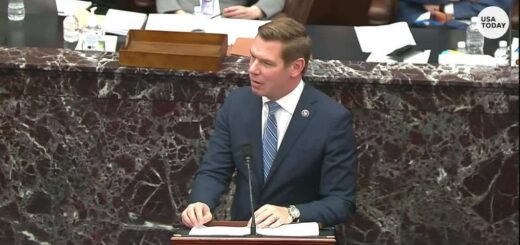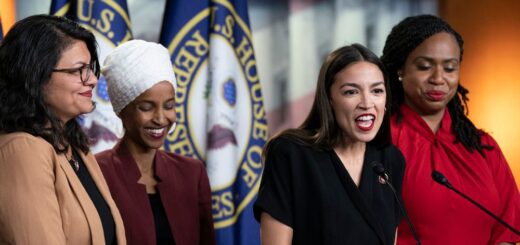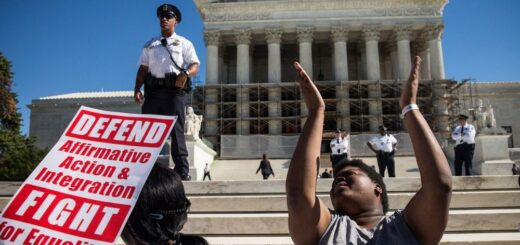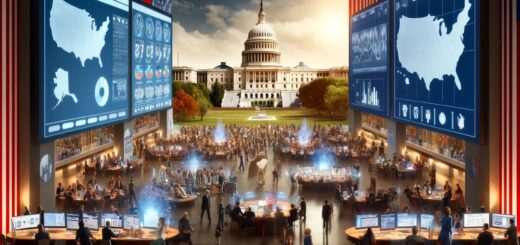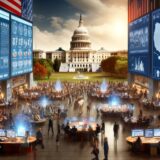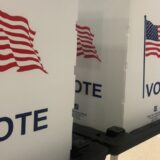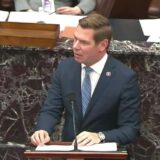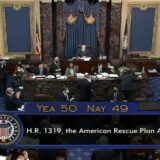Exploring Political Insights and Policies in the U.S.
In the United States, politics is not just a matter of government; it is a key area that profoundly affects all aspects of the country’s life. From shaping economic policy to defining international relations, the political decisions made in the corridors of power reverberate around the world. This article explores the multifaceted landscape of American politics, emphasizing the role of technology in governance, the impact of legislative changes, and the significance of political developments in the last decade.
Understanding the Political Landscape
Political insights in the U.S. reveal a complex interplay between policy decisions and their impacts on society. From healthcare reforms to technological integrations in governance, the landscape is continuously evolving.
The Evolution of Political Engagement: Technology at the Forefront
In recent years, technology has taken center stage in the transformation of political participation and governance. Digital platforms have revolutionized the way campaigns are conducted, policies are discussed, and the way citizens interact with their leaders. Social media, for example, has become an essential tool in the arsenal of politicians. They offer an unprecedented opportunity to reach large audiences, interact with voters in real time, and manage public opinion and media narratives. Moreover, data analytics and digital tools have enabled more targeted and effective campaign strategies, optimizing voter outreach and engagement.
The introduction of technology into politics, however, is a double-edged sword. While it enhances transparency and participation, it also raises significant concerns about privacy, disinformation, and security of electoral processes. The 2016 U.S. presidential election highlighted digital security vulnerabilities and the potential for foreign interference, underscoring the need for robust cybersecurity measures and regulations governing digital political activity.
Legislative Dynamics and Social Impact
Legislative processes in the United States have also undergone significant transformations, largely influenced by both political will and public opinion. Major pieces of legislation such as the Affordable Care Act have demonstrated how political decisions can have a broad impact on the health and well-being of millions of Americans. Similarly, policy changes in environmental regulation reflect growing concerns about climate change and sustainability. These legislative changes not only alter the political landscape, but also reflect the evolving priorities of the American people.
The role of the US Congress in this regard is critical. As the chief legislative body, its actions and inactions often set the tone for national political debate. Passing legislation can be a contentious process, influenced by partisan ideologies, lobbying efforts, and public pressure. This dynamic was clearly evident during the recent debate on fiscal policy and public spending, where party differences led to significant delays and compromises.
Major Political Events and Their Implications
The US political scene is also marked by important events that have shaped its current state. Presidential elections, congressional elections, and judicial appointments play an important role in determining the direction of national policy and governance strategies. For example, the 2020 presidential election not only changed the administration, but also brought issues such as health care, immigration, and economic recovery to the forefront of the national discourse.
In addition, political developments such as impeachment trials, public hearings on political issues, and Supreme Court decisions have had a significant impact on the country’s legal and cultural fabric. Each of these events not only tests the strength of American democratic institutions, but also influences public opinion and the future political landscape.
Major Political Events and Their Significance
- Presidential Elections and Their Global Impact
- Legislative Changes and Their Social Implications
- Technological Adoption in Political Campaigns
Comparative Analysis of Political Changes
| Year | Event | Impact |
| 2021 | Introduction of Major Bills | Shift in legislative focus and priorities |
| 2023 | Policy Reassessment | Reevaluation of existing policies to better align with current needs |
Frequently Asked Questions (FAQ)
What is the role of technology in modern U.S. politics?
Technology plays a crucial role in enhancing transparency, engaging voters, and streamlining governance processes.
How do political decisions affect technological advancements?
Legislative and policy decisions can either spur technological innovation or impose restrictions that slow progress.
What are the key challenges in U.S. politics today?
Challenges include political polarization, the influence of misinformation, and the need for campaign finance reform.
For more insights on data science and its applications, visit this detailed exploration of R programming in data science.
Discover effective study and homework strategies at this comprehensive guide.
